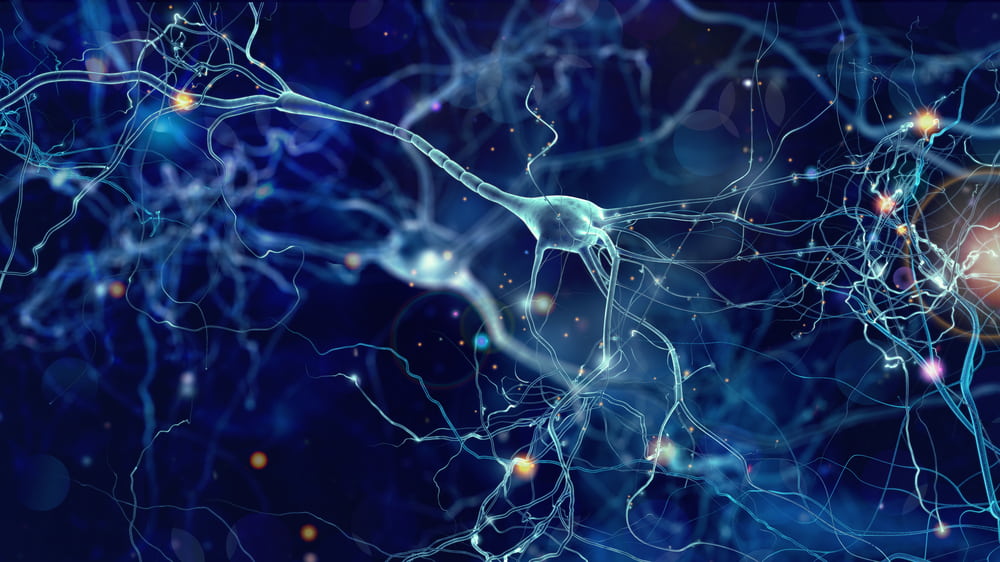How Does Sleep Affect Cognitive Function?
Medically reviewed by our experts


Ever tried solving a complex problem after a night of tossing and turning? Your brain feels foggy, your attention wanders, and even simple tasks become challenging. This common experience highlights how does sleep affect cognitive function – a relationship that’s fundamental to our mental performance.
In our always-on digital world, quality sleep often takes a backseat to scrolling screens and late-night work sessions. Yet this trade-off comes at a significant cost to our thinking abilities, memory, and overall brain health.
Key Article Findings
- Quality sleep enhances memory, problem-solving, and attention—fundamental elements of cognitive performance.
- Sleep deprivation impairs thinking abilities similarly to alcohol, affecting reaction time and decision-making.
- Both sleep quality and quantity are essential for optimal brain function throughout life.
The Science Behind Sleep and Cognitive Function
Your brain doesn’t simply shut down when you sleep – it enters an active state of maintenance and processing that explains why sleep is important for cognitive health. During sleep, your brain cycles through several distinct phases that each serve different cognitive purposes.
These cycles include light sleep, deep sleep, and REM (rapid eye movement) sleep. During deep sleep, your brain consolidates memories and information learned throughout the day, helping to cement new knowledge into long-term storage. Meanwhile, REM sleep – when most dreaming occurs – helps process emotional information and supports creative problem-solving.
Sleep also serves as your brain’s cleaning system. During rest, the glymphatic system activates, removing waste proteins that accumulate throughout the day. This “brain cleaning” process supports optimal neural functioning and may protect against cognitive decline.
Research consistently demonstrates the connection between sleep and cognitive performance. Studies show that during sleep:
- Neural connections formed during waking hours are strengthened
- Important memories are prioritized while less relevant details are pruned
- New learning pathways are reinforced
- Brain cells repair themselves from daily wear and tear
This biological maintenance explains why a good night’s rest leaves you thinking more clearly, solving problems more effectively, and responding more quickly to challenges.
How Sleep Deprivation Impacts Cognitive Performance
Missing out on quality sleep doesn’t just leave you feeling tired – it fundamentally alters how your brain functions. Sleep deprivation cognitive performance studies reveal that even one night of poor sleep can significantly impair your thinking abilities.
When you don’t get enough sleep, your brain struggles with basic functions that you normally take for granted. Your attention wanders, making it difficult to focus on tasks or conversations. Your working memory capacity shrinks, causing you to forget instructions or lose track of thoughts mid-sentence. Decision-making becomes impaired, often leading to riskier choices and poor judgment.
Research has found that staying awake for 17-19 hours straight can impact your brain similarly to having a blood alcohol level of 0.05% – just under the legal driving limit in many places. This explains why drowsy driving is responsible for thousands of accidents annually.
The effects of sleep deprivation on cognition include:
- Slowed reaction time (up to 50% in some studies)
- Reduced ability to process new information
- Impaired creativity and problem-solving skills
- Compromised emotional regulation
- Decreased accuracy on routine tasks
- Difficulty switching between different cognitive tasks
What’s particularly concerning is how quickly these effects appear. Just one week of sleeping less than six hours per night can create measurable cognitive deficits. Even more troubling, many sleep-deprived individuals aren’t aware of how impaired they’ve become – a phenomenon researchers call “sleep debt unawareness.”
Sleep and Memory: The Critical Connection
Sleep serves as your memory’s best friend, playing a crucial role in how your brain stores and retrieves information. This process isn’t one-size-fits-all – different types of memories are processed during specific sleep stages.
Your brain handles two major categories of memory during sleep:
- Declarative memories (facts, events, and knowledge you can consciously recall) are primarily consolidated during deep, slow-wave sleep
- Procedural memories (how to perform actions like riding a bike or typing) are predominantly processed during REM sleep
During sleep, your hippocampus (the brain’s memory coordination center) replays the day’s experiences, transferring them from temporary storage to more permanent regions of your brain. This transfer strengthens neural connections, making memories more resistant to forgetting and easier to access later.
The memory benefits of sleep appear in everyday situations:
- College students who prioritize sleep during exam week typically recall more information than classmates who pull all-nighters
- Professionals with consistent sleep schedules often remember meeting details and client names more reliably
- Musicians learning new pieces make fewer mistakes after sleep, even without additional practice
- Language learners retain vocabulary better when they review words before bedtime
Sleep Quality vs. Quantity: What Matters More for Brain Function?
When it comes to the cognitive function of sleep, both quality and quantity play vital roles – but they’re not created equal. While most adults need 7-9 hours of sleep, the quality of those hours can make a significant difference in how your brain performs the next day.
Sleep quality refers to how well you sleep rather than just how long. Key elements of quality sleep include:
- How quickly you fall asleep (sleep latency)
- How continuous your sleep is (minimal awakenings)
- The percentage of time spent in deep and REM sleep
- How refreshed you feel upon waking
Research suggests that uninterrupted, deep sleep provides more cognitive benefits than longer periods of fragmented sleep. Six hours of high-quality, uninterrupted sleep often supports better brain function than eight hours of constantly disturbed rest.
Your individual sleep needs depend on several factors:
- Genetics (some people are naturally short or long sleepers)
- Age (sleep architecture changes throughout life)
- Activity level (physically active people may need more recovery sleep)
- Current cognitive demands (learning new skills may increase sleep needs)
To determine your optimal sleep amount, pay attention to how you feel and perform with different amounts of sleep. When you consistently wake up feeling refreshed without an alarm and maintain mental clarity throughout the day, you’ve likely found your sweet spot.
The ideal approach combines sufficient duration with high quality – creating the perfect conditions for your brain to carry out its essential nighttime maintenance and processing.
Signs Your Cognitive Function Is Suffering from Poor Sleep
Even mild sleep deprivation can significantly impact your mental abilities, often in ways you might not immediately connect to your sleep habits. Being aware of these warning signs can help you recognize when poor sleep is affecting your brain:
- Trouble focusing on tasks – You find yourself reading the same paragraph multiple times or losing track during conversations
- Impaired memory – You forget where you put your keys, miss appointments, or can’t recall information you normally remember easily
- Difficulty making decisions – Simple choices feel overwhelming, and you find yourself unnecessarily postponing decisions
- Slowed reaction time – You notice delayed responses while driving or during physical activities
- Increased errors – You make mistakes in tasks you typically perform without problems
- Reduced creativity – Problem-solving becomes more challenging, and innovative thinking decreases
- Mood changes – You experience irritability, impatience, or emotional overreactions to minor stressors
- Word-finding problems – You struggle to recall common words or names during conversations
Practical Tips to Support Sleep for Better Cognitive Performance
Improving your sleep habits can significantly boost your brain function. Here are practical strategies to optimize your sleep for better cognitive performance:
Create a sleep sanctuary:
- Keep your bedroom cool (65-68°F/18-20°C)
- Eliminate noise with earplugs or white noise machines
- Block light with blackout curtains or a sleep mask
- Invest in a comfortable mattress and pillows
Maintain consistent timing:
- Go to bed and wake up at the same times (even on weekends)
- Align your schedule with your natural chronotype (early bird or night owl)
- Get morning sunlight to regulate your circadian rhythm
Develop a wind-down routine:
- Disconnect from screens 1-2 hours before bed
- Practice relaxation techniques like deep breathing or gentle stretching
- Try a warm bath or shower to trigger the natural drop in body temperature that signals sleep
Manage lifestyle factors:
- Exercise regularly, but not within 2-3 hours of bedtime
- Limit caffeine after noon and alcohol near bedtime
- Avoid large meals and excessive fluids before sleep
For those looking to further support their sleep-wake cycles, certain nervous system supplements may help. Cognilux combines Niacin, Vitamin B6, and Caffeine Anhydrous in a carefully formulated blend. These ingredients are known to support mental alertness during the day, which can contribute to better sleep-wake rhythm regulation.
Unlike general supplements, Cognilux is specifically formulated to support overall brain performance throughout your daily cycle. By promoting balanced energy during waking hours, this supplement may help maintain the natural rhythm that leads to more restorative sleep and improved cognitive function the following day.
Special Considerations: Age, Stress, and Sleep’s Impact on Cognition
The relationship between sleep and brain function evolves significantly throughout life. Children and adolescents require more sleep than adults as their brains undergo critical development. During these formative years, sufficient sleep supports learning, emotional regulation, and memory formation that shape cognitive abilities for life.
| Age Group | Sleep Needs | Sleep Characteristics | Cognitive Impact |
| Children (6-12) | 9-12 hours | Deep sleep dominant | Critical for memory consolidation and learning |
| Teens (13-18) | 8-10 hours | Delayed sleep phase common | Supports emotional regulation and decision-making |
| Adults (18-64) | 7-9 hours | Balanced sleep cycles | Maintains optimal cognitive performance |
| Older Adults (65+) | 7-8 hours | Less deep sleep, more fragmented | Sleep quality crucial for preserving cognitive function |
Conclusion
Understanding how does sleep affect cognitive function empowers you to take control of your mental performance. Quality sleep isn’t a luxury – it’s essential brain maintenance that supports everything from memory to creativity to emotional balance. By making sleep a priority and implementing small, consistent improvements to your sleep habits, you’re investing directly in your cognitive health and overall well-being. Your brain performs at its best when well-rested – give it the sleep it deserves.
Lack of sleep increases irritability, anxiety, and depressive symptoms while reducing emotional regulation abilities. It impairs stress management and can worsen existing mental health conditions by disrupting mood-regulating brain chemicals and neural pathways.
Yes, lack of sleep directly causes brain fog. Sleep deprivation impairs attention, concentration, and mental clarity by slowing neural communication and reducing the brain’s ability to process information efficiently.
Yes, your brain can fully recover from short-term sleep deprivation with several nights of quality sleep. However, chronic sleep loss may require longer recovery periods and could potentially have lasting effects on cognitive function.
Five hours of sleep is insufficient for most adults. While individual needs vary, research shows that regularly sleeping less than 7 hours increases risk of cognitive impairment, mood issues, and reduced performance.
Patel, A. K., et al. (2024). Physiology, sleep stages. StatPearls – NCBI Bookshelf.
Paller, K. A., et al. (2020). Memory and Sleep: How sleep cognition can change the waking mind for the better. Annual Review of Psychology, 72(1), 123–150.
Basics on sleep. (n.d.). WebMD.
Communication. (2025). Researchers discover the pump for the brain’s ‘washing machine.’
Li, W., et al. (2017). REM sleep selectively prunes and maintains new synapses in development and learning. Nature Neuroscience, 20(3), 427–437.
Khan, M. A., & Al-Jahdali, H. (2023). The consequences of sleep deprivation on cognitive performance. Neurosciences, 28(2), 91–99.
Module 3. Impairments due to sleep deprivation are similar to impairments due to alcohol intoxication! | NIOSH | CDC. (n.d.).
Ohwovoriole, T. (2024). Different types of memories. Verywell Mind.
Benkirane, O., et al. (2022). Impact of sleep fragmentation on cognition and fatigue. International Journal of Environmental Research and Public Health, 19(23), 15485.
Sleep deprivation and memory loss. (n.d.). WebMD.
asperi, V., et al. (2019). Niacin in the central nervous system: an update of biological aspects and clinical applications. International Journal of Molecular Sciences, 20(4), 974.
Durrani, D., et al. (2022). Vitamin B6: A new approach to lowering anxiety, and depression? Annals of Medicine and Surgery, 82.
Marriott, B. M. (1994). Effects of caffeine on cognitive performance, mood, and alertness in Sleep-Deprived humans. Food Components to Enhance Performance – NCBI Bookshelf.
Popular Articles
Advertisement. This site offers health, wellness, fitness and nutritional information and is designed for educational purposes only. You should not rely on this information as a substitute for, nor does it replace, professional medical advice, diagnosis, or treatment. If you have any concerns or questions about your health, you should always consult with a physician or other health-care professional. Do not disregard, avoid or delay obtaining medical or health related advice from your health-care professional because of something you may have read on this site. The use of any information provided on this site is solely at your own risk.









